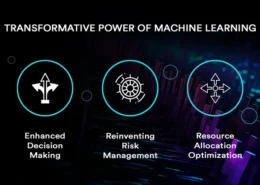Here are the critical challenges for sustainable agriculture in India summarized together: 1. Water Scarcity and Irrigation Management: Efficient water use and sustainable irrigation practices are crucial due to variability in rainfall and increasing water scarcity. 2. Soil Health and Degradation: MRead more
Here are the critical challenges for sustainable agriculture in India summarized together:
1. Water Scarcity and Irrigation Management: Efficient water use and sustainable irrigation practices are crucial due to variability in rainfall and increasing water scarcity.
2. Soil Health and Degradation: Maintaining soil fertility and health through practices like organic farming and soil conservation to combat erosion and nutrient depletion.
3. Climate Change Resilience: Developing resilience against climate change impacts such as extreme weather events, temperature fluctuations, and shifting rainfall patterns.
4. Pesticide and Chemical Use: Reducing reliance on pesticides and chemical fertilizers to mitigate negative impacts on soil, water quality, and human health.
5. Smallholder Farmer Viability: Enhancing livelihoods for smallholder farmers by improving access to markets, credit, technology, and sustainable farming practices.
6. Biodiversity Conservation: Protecting biodiversity in agricultural landscapes through agroforestry, biodiversity-friendly practices, and habitat preservation.
These challenges require comprehensive strategies and concerted efforts from government, research institutions, NGOs, and farmers to achieve sustainable agriculture in India.
See less

In India, the chances of getting a quality education for civil services have improved significantly in recent years. The government's initiatives such as the National Education Policy (NEP) and the Digital India campaign have increased access to quality educational resources. Online platforms like SRead more
In India, the chances of getting a quality education for civil services have improved significantly in recent years. The government’s initiatives such as the National Education Policy (NEP) and the Digital India campaign have increased access to quality educational resources. Online platforms like Swayam, Coursera, and edX offer affordable and high-quality courses, bridging the gap for aspirants from rural and underprivileged backgrounds.
Moreover, the proliferation of coaching institutes and online test preparation platforms has made quality guidance and mentorship more accessible. The rise of digital learning platforms like Unacademy, BYJU’S, and Vedantu has also transformed the way aspirants prepare for civil services exams.
Furthermore, the Union Public Service Commission (UPSC) has introduced reforms like online applications, digital admit cards, and live broadcasts of interviews, making the process more transparent and accessible. State governments have also launched initiatives like the Civil Services Academy and the National Talent Search Examination to identify and nurture young talent. Overall, India has made significant strides in making quality education more accessible and inclusive for civil services aspirants.
See less